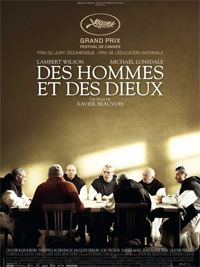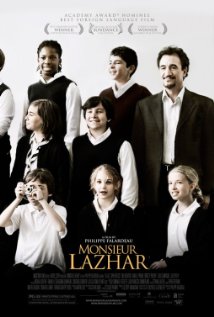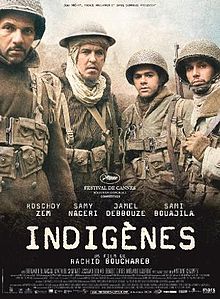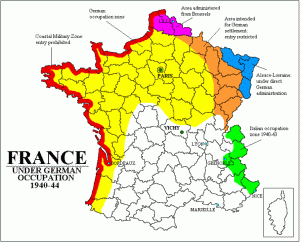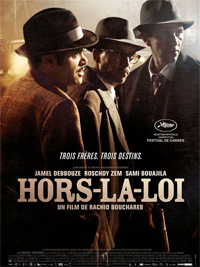 After the success of the masterpiece Days of Glory that was nominated for Best Foreign Language Film in the 2006 Academy Awards, the sequel Outside the Law was made with the hope of being another great success, but unfortunately it does not live up to the previous work at all; seeking success using the same seed did not bear fruit.
After the success of the masterpiece Days of Glory that was nominated for Best Foreign Language Film in the 2006 Academy Awards, the sequel Outside the Law was made with the hope of being another great success, but unfortunately it does not live up to the previous work at all; seeking success using the same seed did not bear fruit.
The actors who won Best Actor Awards in the Cannes Film Festival for their performances in Days of Glory, the previous work by the same director Rachid Bouchareb, appear again. Three actors that played soldiers in the previous work appear in the sequel with the same names (Messaoud, Abdelkader, Saïd), but this time the three men are brothers from Algeria. The actor who played the slightly quirky Sergeant Martinez in the previous work appears as a French police investigator who chases the three men. One key actor who won an award for Best Actor at Cannes, Samy Naceri as Yassir in the previous work, does not appear. This is probably due to the fact that before and after his appearance in Days of Glory, this actor was found guilty for the possession of cocaine a few times and at last in 2009 he was arrested on charges for assault with a knife.
When these three male actors with different facial features and body types are in the same unit as soldiers, it is believable; but when performing as brothers, it looks weird. The various events that happen to them as soldiers in the same unit are believable, but the things that happen to the three brothers one after another is too much of a coincidence. Furthermore, because this movie depicts a long period of time—from before World War II until 1962—in 2 hours, the movie gives the impression of just scratching the surface instead of digging deeper. After the success of Days of Glory, director Rachid Bouchareb seems to aim more strongly for an entertainment component, throwing in action scenes, to be a financial success. In fact, it felt like this movie was strongly influenced by the legendary Hollywood movie The Godfather. However, these action scenes are lacking something. Even though Hollywood movies may be criticized in various ways, Hollywood hasn’t spent all this time developing action movie techniques for nothing. These action scenes still have a long way to go to achieve a similar level as those in Hollywood.
This movie begins with the land that is owned by the father of the three brothers in an Algerian village being confiscated by an Algerian man with a connection to a French official. And so the family leaves their home town. The movie itself is fiction, but it draws upon actual historical events such as the Sétif massacre. On May 8, 1945, after Germany surrendered, Algerians in Sétif—where a French military base was located—and neighboring areas demanded independence and performed a demonstration, but the demonstration transformed into a riot when the police intervened and many people were killed in the process of suppression. In the movie, the brothers’ father is killed in this riot, and the second son Abdelkader is arrested and sent to a French prison.
The eldest son Messaoud is dispatched to Vietnam as a soldier of the French military. This movie shows mainly soldiers from French colonies being sent to Vietnam. The First Indochina War was fought by France primarily with people from Morocco, Algeria, Senegal, and other French colonies; the morale was low and there was a strong anti-war feeling. Eventually, France withdrew from Vietnam after the Geneva Accords in 1954.
The third son Saïd kills the Algerian landlord who stole his family’s land; he then goes with his mother to Paris where his older brother is imprisoned and devotes himself to money-making by opening a bar and boxing gym. Before long, the eldest brother returns from Vietnam, the second son is released, and the family finally reunites in Lance.
The second son Abdelkader and the eldest son Messaoud participate in the Algerian National Liberation Front (FLN) in Paris. The two assassinate government officials by using Messaoud’s former war comrade—an Algerian that Messaoud had met in the World War II resistance movement and Vietnam War, now working within the French government. As the FLN movement becomes more radical, the actions of the two men become more violent.
It is said that director Rachid Bouchareb decided to make a sequel because a lot of people asked him what happened afterwards to the main characters from his hit Days of Glory. It is not clear whether this movie approves or disapproves of the violence of FLN. I think he probably disapproves, but it is very difficult to keep watching these violent scenes. Also, I cannot see hope for Algeria’s future in this movie. It is regretful that the long-awaited sequel to the magnificent masterpiece was extremely violent and leaves a dark feeling after watching it. This may reflect the heavy price paid for independence and the sad reality of the current political instability in Algeria it led to. Furthermore, it is said that many people objected to how the contents of this movie are not historically impartial. This movie has received mixed reviews in many ways. This movie was nominated for the Academy Award for Best Foreign Language Film.

